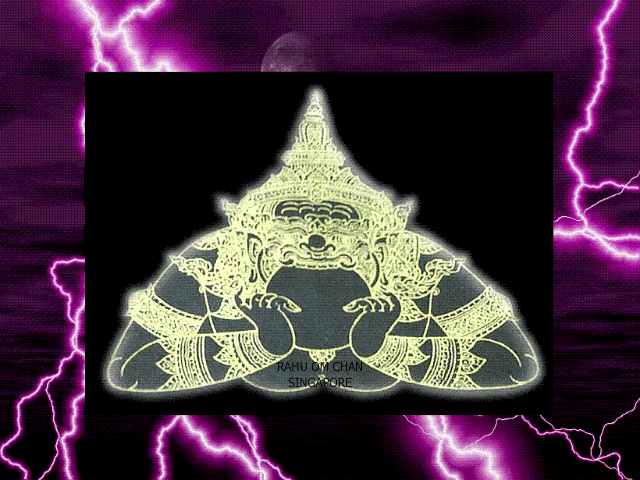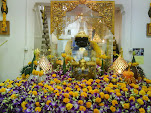The ceremony helps the deceased to rest in peace.
Without dhamma or Buddhist chanting by monks, the spirit, with an unconscious mind, might be lost in an unknown destiny between the worlds of the deceased and the living.When their karma - activities that bring upon oneself inevitable results, good or bad, either in this life or in a reincarnation - causes them to be born again, as only enlightened persons will not be born anew, they might suffer a sad fate.
For deceased royal personages, the ceremony must be held with elegance to honour those returning home in Buddhist heaven. In terms of deva-raja (god-king), which is based on Brahmin and Buddhist beliefs, royals, especially the king, are incarnations of god or angels in Buddhist heaven, coming to earth to take care of the people.
Although Thais nowadays do not believe in deva-raja, they feel it's more polite to say that their beloved royal personages have returned to their home in heaven.
In general, merit-making for the deceased begins on the first day of the funeral. The deceased will be laid on a bed with head turned to the west. The most respected or eldest person in the family will comb the body's hair halfway from front-to-back and halfway from back-to-front.After that, relatives and friends will sprinkle holy water on the right hand of the deceased.
At a later time, the deceased will be put into a coffin decorated with flowers and a photo of the deceased. When the monks finish preaching the fourth cycle of Phra Abhidhamma, a collection of analytical treatises based on lists of categories drawn from the teachings in the Buddhist discourses, close relatives will offer robes and necessities to the monks and the monks will pray for the deceased.
The merit-making ceremony might continue for three, five, seven or 100 days, depending on what the relatives agree to.
In the royal merit-making ceremony, honorary ornaments will be put in the front and to the side of a coffin including a golden urn decorated with golden flowers, golden and silver flower bushes and royal honorary necessities.
For the Princess Mother's funeral in 1995, His Majesty the King invited monks from nine royal Buddhist temples - Phra Chetupon, Saket, Maha That, Suthat, Chakrwat Rajawas, Rakang, Prayurawongsawat, Anongkaram and Rajasitharam - to preach Phra Abhidhamma at Dusit Maha Prasat Throne Hall for 100 days. After that, members of royal families, top government officials and other senior figures held the merit-making ceremony until February 29, 1996 - nine days before the royal cremation on March 10.
During that time, the special royal merit-making ceremony took place every Tuesday, the day the Princess Mother passed away.
*source : nationmultimedia.com
Monday, 7 January 2008
Subscribe to:
Post Comments (Atom)


No comments:
Post a Comment